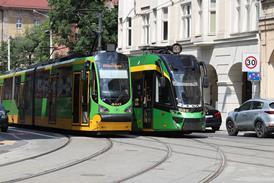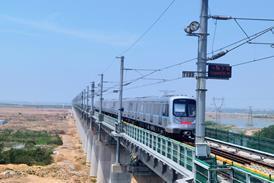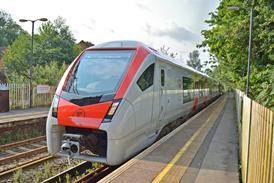PROVIDING some form of on-board catering in the package that train operators offer to customers is no longer in question. What is open to question is the cost of this service. As railways seek to cut costs, contract catering has become the prime means of delivering on-board food and drink, and operators and caterers are developing closer working relationships that are paying dividends in terms of business success and profitability.
Recent years have seen tremendous changes in service priorities, technology and customer preferences. This is bound to continue, with commercial pressures driving down costs and leading to the use of novel technology.
It is not a painless process, as instanced by an industrial dispute in March with Rail Restauration, the Wagons-Lits train catering subsidiary in France. The trouble followed RR’s move to introduce changes in working conditions and practices following its success in winning a bid to provide train catering on most of SNCF’s services from January 1 for six years. As SNCF will progressively withdraw all grants for train catering by 2003, RR plans to break even by that year, and is in the meantime aiming to double turnover by 2001. Current sales amount to around Fr450m a year, but SNCF contributes about Fr300m of this.
Assuming it resolves its dispute with on-board staff, RR’s first move is to launch new services towards the end of this month on TGVs from Paris to Lyon and St Etienne.
Swiss-owned Rail Gourmet enjoys a leading role in this sector of the industry, with operations spread from Spain to Scandinavia. Chief Executive Edy Fischer explains one of the key agents of change: ’there has been tremendous investment to bring down journey times, with a vast increase in cross-border rail travel as a result. The challenge to rail caterers has been to come up with a food and drink offer and specification that will appeal to a number of regional tastes at the same time.
’Eurostar is an obvious example of this, but similar challenges can be seen on rail services linking France, Belgium, the Netherlands and Germany, where local tastes can differ significantly within a relatively short distance.’
Part of the travel package
Train operators know that the right combination of fast journey and excellent on-board service opens the door to higher passenger numbers. This was shown by the introduction of accelerated services on Danish State Railway’s Great Belt route, providing greatly accelerated timings. Rail Gourmet’s TogService subsidiary provided an innovative package of on-board catering for these trains, including complimentary meals in First Class.
A key aim is to provide a more attractive choice than would be available to passengers travelling by air, and at competitive prices. This philosophy has also been applied on Thalys and on the Spanish AVE high speed services.
Operators are increasingly looking to provide a better service at less cost and lower financial risk - hence the surge towards contract catering, either with or without contract staffing.
Developments in Britain are moving particularly fast, as the newly-franchised operators seek to attract customers without taking on more financial risk. Many of Britain’s operators do not employ their own catering staff, who are often provided by the contractor. Rail Gourmet is in a particularly strong position in the British Market, having taken over European Rail Catering last year.
Technology pushes innovation
One innovation which will make a growing contribution during the next year is the Prego concept of Café Bar and Express trolley. This will offer a choice of hot and chilled snacks and drinks both in a restyled buffet and at seat. Rail Gourmet is working closely with South West Trains to broaden the scope of the concept further to cover both trains and stations.
Also planned is further improvement to the ’in-store’ bakery concept - using scaled-down equipment designed for supermarkets to provide supplies of fresh pastries and bread products at key stations. An installation at Edinburgh is planned to complement those at Newcastle, Leeds and Kings Cross, ensuring that products transfer from oven to train in only a few minutes.
Information technology is being harnessed to provide better management of stock requirements by monitoring sales directly. Electronic Point of Sale technology is being rolled out by Rail Gourmet in Spain, Belgium and Denmark, and it will be introduced to Britain with systems supplied to major train operators as well as for Rail Gourmet’s own catering contracts. This will allow managers to plan the logistics of just-in-time delivery of the right food to the right trains.
Future prospects
Operators accept the contribution that quality train catering makes. What is needed now are ways of creating stronger partnerships which overcome the conflicting interests of customer service and profitability.
’We are looking at longer contracts with train operators so that higher levels of investment can be justified’, says Fischer. In this context Rail Gourmet signed a contract with Great Western Trains in February for wholesale supply of food, drink and equipment on all GW services for eight years. ’The impact of all this change will be felt within every aspect of train catering, affecting the commercial framework between our customers, the rail companies and us as caterers. We are looking with excited anticipation as new trains are rolled out, as new brands are launched and as global players, such as Virgin, take an increasingly major role in the future of quality rail travel.’ o
CAPTION: High speed services offer opportunities to provide catering as an integral part of the travel package Rail Gourmet
CAPTION: Caterers must be able to offer a variety of fresh products. This requires a sophisticated service support chain to deliver to the train just-in-time Rail Gourmet




















